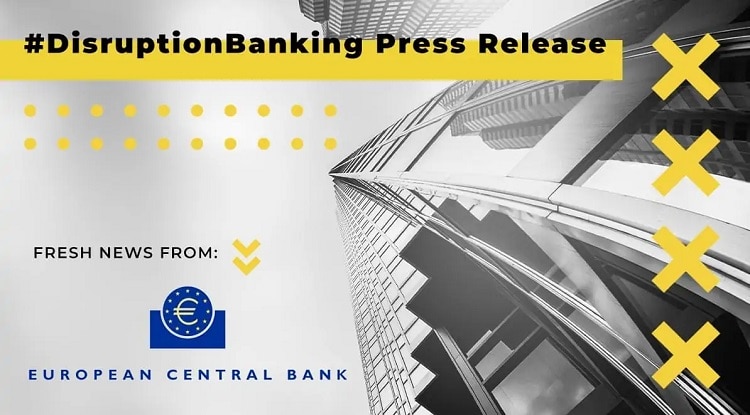In the past few years, the number of tech-savvy and demanding customers has substantially grown, and with the increasing demand for new and comfortable ways of banking, alternatives to traditional brick-and-mortar banking institutions emerged.
We’ve all heard the terms neobanks, challenger banks, and traditional banks. But how many people really know the differences, pros, and cons of each of these? Let’s dive into some specifics.
What Are Neobanks?
Neobanks are financial institutions that operate entirely online without having a physical location like a branch to offer services. More importantly, they offer a much wider scope of services compared to a traditional brick-and-mortar bank.
Neobanks can operate under regulations but not necessarily with the need of a specific banking license unless they want to offer credit cards and loans to their customers. These are most commonly offered by neobanks that partner with traditional banking institutions in order not to go through the heavy process of obtaining a banking license.
Pros of a Neobank
- It’s very quick to set up an account.
- Since there are no physical locations, the up-front costs for running a neobank are lower, so there are better resources available for research and development, including data analytics and decision making. For the same reason, the overall fees are lower.
- Neobanks don’t need to do background checks on their customers like challenger banks like, in the case of giving out a loan, for example.
- A lot of neobanks, like Revolut, also offer a complex number of services, including personal vaults, multiple-currency IBANs, shares, commodities, and even cryptocurrency trading.
Cons of a Neobank
- You cannot physically deposit cash. You need to fund your account via credit/debit card, e-wallet, or bank wire transfer.
- There are no ATMs or physical branches from your specific bank provider. Thus, certain limits or charges might apply when you get cash from any ATM.
- Neobanks apps can be confusing for non-tech savvy people, and there are no branches to go to in order to speak in person with someone.
What Are Challenger Banks?
The name challenger bank is derived from the fact that a lot of smaller banks have a very limited number of physical branches and started operating mainly online and thus began “challenging” bigger brick-and-mortar banks.
Since challenger banks have an actual physical branch, that gives them the right and obligation to be licensed and regulated as a banking institution and gives them the ability to offer the full range of financial services like loans, credit cards, and overdrafts.
Of course, neobanks can also offer similar services, however, only with a smart workaround of partnering with brick-and-mortar banks and financial institutions.
Pros of a Challenger Bank
- Much like neobanks, challenger banks also make it very quick to set up an account, although it might take a bit longer due to background checks.
- Overall lower fees, similar to neobanks. There is a chance that some fees are higher compared to neobanks but lower compared to traditional banks.
- They can provide customers with the full spectrum of financial services, including loans and credit cards, without the help of a third-party bank.
Cons of a Challenger Bank
- Credit checks are still required by the challenger bank itself in the case of credit cards and loans, while neobanks outsource the credit check to their partnering banks.
- Although there might be a physical location, challenger banks have so few of them that chances are high you won’t be near one of the branches.
The Main Differences Between Neobanks and Challenger Banks
Neobanks and challenger banks are very similar, with the major difference being that challenger banks have a physical location, while neobanks don’t.
Of course, having a physical location or several comes with additional costs and benefits, as well as some setbacks. Neobanks, traditionally, offer a wider array of innovative products than challenger banks and traditional brick-and-mortar banks, mainly because of their lack of physical location.
Without physical offices, costs are lower, and spending on research and development rises. Neobanks focus on developing innovative mobile apps and platforms in which the user can fulfill all their needs.
| Criteria | Challenger Bank | Neobank |
| Business Model Type | Closer to a bank | Closer to a tech startup |
| Regulations | Regulated as a bank by financial institutions | Regulated through regulations of third-party providers |
| Supports P2P Payments? | Yes | Yes |
| Debit Cards | Yes | Yes |
| Credit Cards | Yes | Possibly |
| Give out loans? | Yes | Possibly |
| Have physical locations? | Yes | No |
Comparison between challenger banks and neobanks
Final Words
Deciding as a business owner whether to proceed with opening an account with a neobank or a challenger bank is not a hard choice when you know the pros and cons of both. That being said, if you’re looking to cut costs in order to offer better services and products, neobanks are the best choice for you.
Author: Serge Beck, CEO & Founder, Optherium Labs
Serge Beck is a serial entrepreneur, venture capitalist, IT specialist, and blockchain ambassador.
Serge has over ten years of experience on Wall Street and over ten years of experience as a venture capitalist.
Beck is the CEO and Founder of Optherium Labs, a global fintech company developing blockchain solutions to reform defective functions within financial and security infrastructure. He is driven by his belief that people deserve sounder, more secure financial services in our tech-driven world and is committed to eradicating current problems detrimental to end-user experience through the creation of synergized, decentralized products.
Earlier in his career, Beck was responsible for engineering some of the most critical and innovative technological infrastructure at premier financial institutions, including Bear Stearns, Republic National Bank, HSBC Bank and Merrill Lynch, where he revolutionized the way market participants could operate through advanced software development.
















One Response
Indeed, well explain comparison of Neo-Banks and Challenger Banks
I recently published an article on Fintech Business Analytics (CB Insights 2022, Top 250 Fintech Companies) with focus on digital banking.
It would be great if you provide your valuable feedback on it.
https://www.linkedin.com/pulse/fintech-revolution-disruption-traditional-banking-future-ahmed/